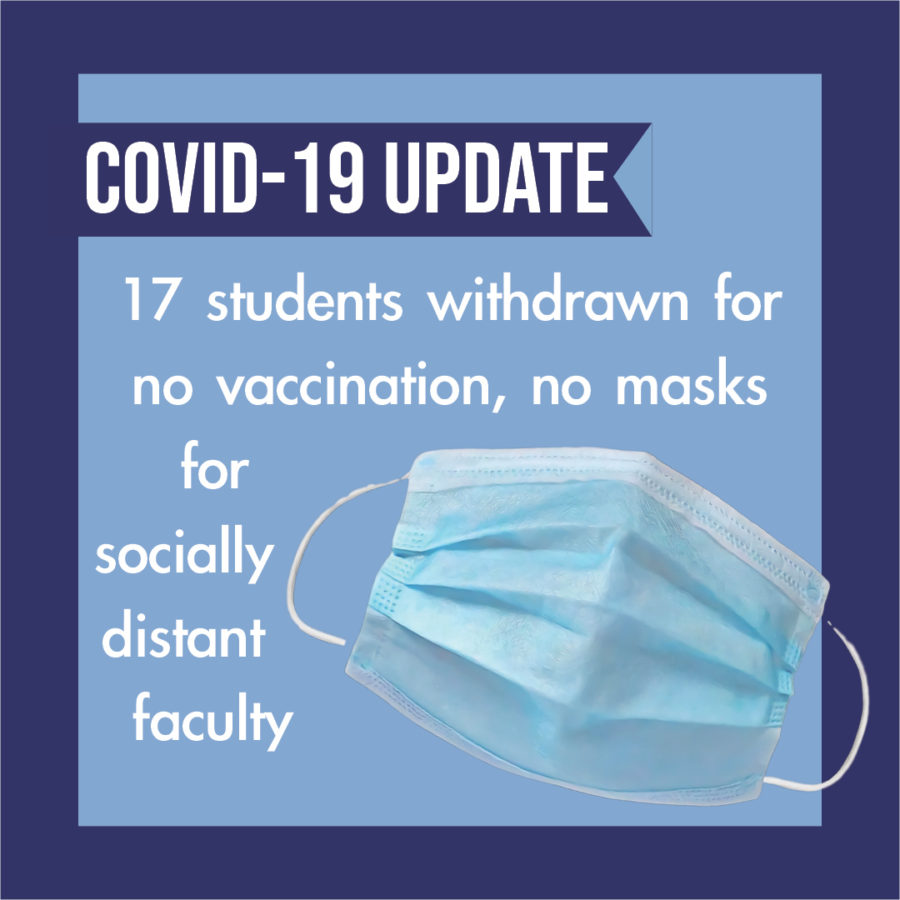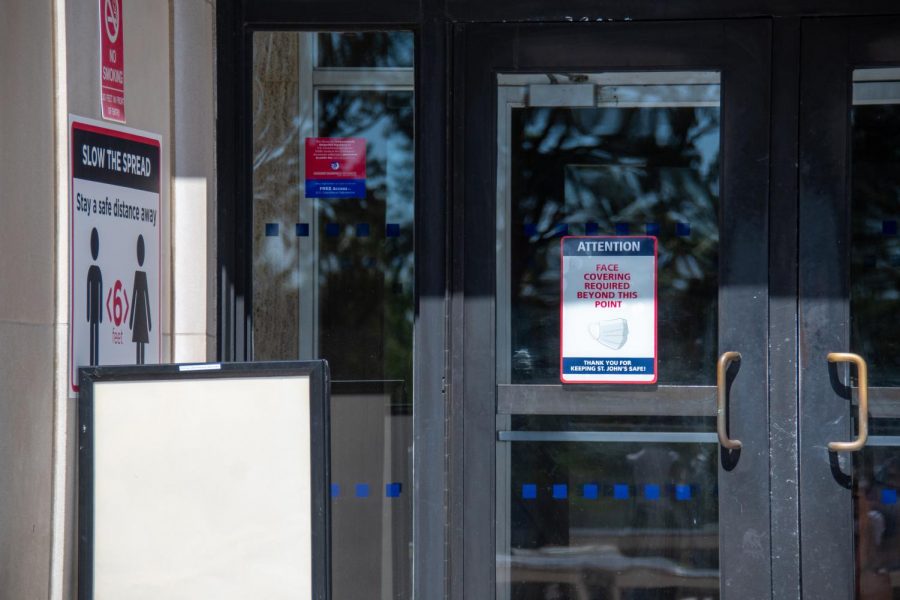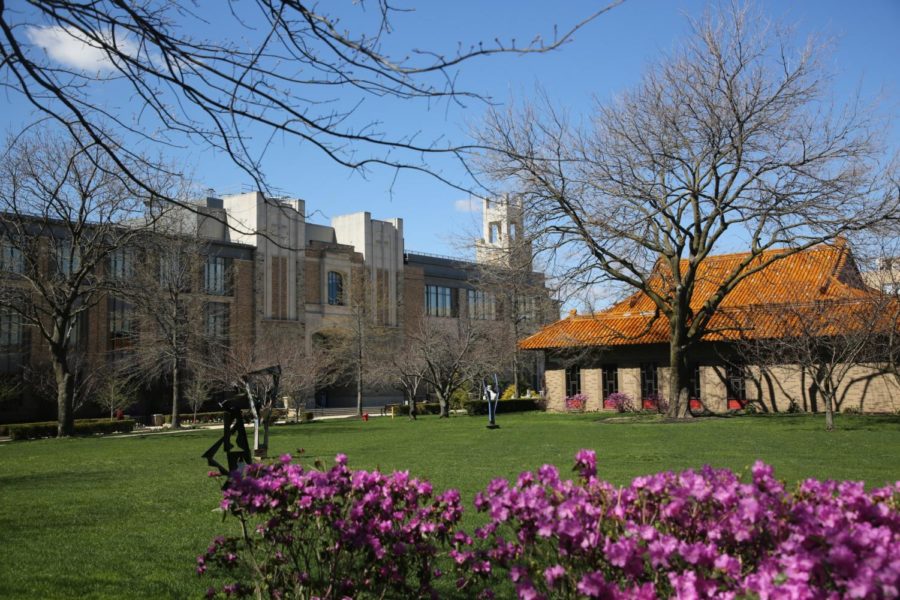When the classes went fully online during the Spring 2020 semester, the University implemented a Pass/Fail option that remained available until the day before finals and was applicable to all courses, including major courses. By extending this Pass/Fail option, the University gave students the opportunity to feel a little less stressed by their courses, knowing that they could choose to Pass/Fail at any point they needed to.
The University, however, did not extend this option to students for the Fall 2020 semester, even though it also holds to be an unprecedented semester — so how do students feel about this?
The option to Pass/Fail a class closed on Oct. 27. Heather Bonsignore, a junior communications arts major with a concentration in media management said, “the Pass/Fail this semester should have been offered in the same capacity as it was in the spring.” Bonsignore believes her professors are assigning a greater deal of work this semester, work that she believes is not necessarily teaching her anything.
“In addition, I actually have no Zoom classes, I only have discussion board posts and not many lectures to watch,” Bonsignore said. “I would rather be on campus than online because I learn better that way, but all of my classes are online.”
Simon G. Møller, Ph.D., provost and vice president for Academic Affairs, told the Torch that part of the reason for this shift has to do with the impact of a Pass/Fail on students’ transcripts.
“A letter grade of ‘P’ does not reflect students’ academic efforts and could impact a student’s future financial aid eligibility and academic plans,” Møller said.
“Last Spring, due to the pandemic the University was required to pivot to remote instruction with little to no notice to our students and faculty. A broader Pass/Fail option was offered to students for the semester to account for this unexpected disruption,” Møller continued. “For the Fall term, the University, like many of its peer institutions, is reverting to our normal grading practice.”
Jason Nikolatos, a junior homeland security major, weighed in on the decision, saying, “I think that the Pass/Fail option that they had for the semester was reasonable. Personally I am not really able to use that option so I’ve never really had to consider it.”
“The professors at St. John’s University that I have taken have adapted fairly well to the hybrid and online changes that were made in response to COVID-19,” Nikolatos said, which is one of the reasons he did not feel the need for an extended pass/fail option this semester.
“Fortunately, things seem to be much more well organized this semester and they were when we had to suddenly leave in the middle of the spring semester last year,” Nikolatos said.
“I would not say that I faced any significant challenges [this semester], just that this is not ideal to me and that I prefer fully in-person classes, I’m sure many other people feel the same way,” Nikolatos said. “Coming back this semester I had a feeling things would be the way they are now and I was just glad to be able to move back in and I am hopeful that I will be able to do so again next semester.”
Imman Shah, a sophomore biology major, disagrees with Nikolatos, explaining that “the Pass/Fail option definitely should be offered longer. Not everyone has the same resources nor time to thrive in an online setting.”
Shah explained that the lack of resources and support for learning were among the biggest struggles she’s faced this semester, causing her to believe the Pass/Fail option should have been extended.
“Also, a lot of professors don’t take the time to have virtual office hours [for students] to ask for help, and emails aren’t that great most of the time,” Shah said. “However, professors have been more flexible in meeting times and with work, and are more open in how the course will be run.”
George Whitbread, a senior journalism major, also believes that the Pass/Fail option should have been made accessible longer, as it was last semester.
“Obviously, a lot of students are not dorming [this semester], and you don’t know what their home life is like,” he said. “They could be struggling mightily with online classes at home. Home may not be the best learning environment for everyone.”
Facing a fully online schedule, Whitbread explained that some professors have done a good job with online classes, while others have not.
“Some of my professors have been very good at keeping us students involved in the class and participating,” Whitbread said. “However, I have one class where we don’t have the option to turn our cameras on.There’s hardly a chance for students to interact with one another.”
Online classes this semester have certainly been a struggle for many and for some students, implementing an extended Pass/Fail option was something they were hoping to see return this fall to better adapt to the new reality of pursuing a college education during a pandemic.
“In this challenging time of COVID-19, college students are not robots that can just turn in a perfectly done assignment whenever a professor asks,” Whitbread said. “Just because it’s our second semester of online classes doesn’t mean it has gotten any easier for us students.”















